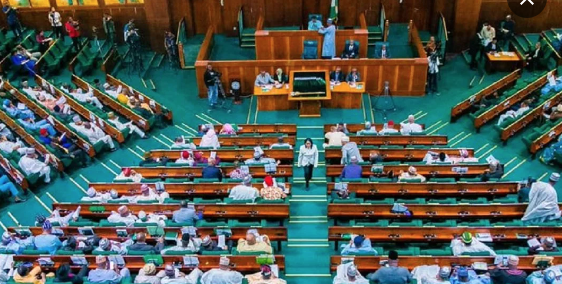In an effort to address the pressing issue of food security in Nigeria, Speaker of the House of Representatives, Rt. Hon. Tajudeen Abbas, has revealed that over 15 bills related to food security are currently at various stages of enactment within the legislative framework. Speaking at the 22nd Daily Trust Dialogue in Abuja, themed “Food Security: Availability or Affordability,” Abbas underscored the importance of affordability, particularly for low-income populations when staple food prices surge.
Among the bills mentioned are the National Food Reserve Agency (Establishment) Bill, 2023, the Food Processing and Preservation Centre, Osi Ekiti, Kwara State (Establishment) Bill, 2023, and the Nigeria Food Security Bill, 2023, among others. These legislative efforts are aimed at creating structures that will support food security by enhancing food production, preservation, and distribution.
Abbas, represented by Hon. Chike John Okafor, the chairman of the House Committee on Nutrition and Food Security, emphasized the House’s commitment to supporting farmers through subsidies, improved access to credit, and the adoption of modern farming technologies. The legislative agenda also includes fostering digital innovation, data protection, and e-commerce to boost export potential and decrease reliance on imports.
He highlighted the collaborative approach between the government and the private sector in critical areas like seed production and agro-processing, which are essential for achieving food security. The creation of specific committees like the one on agricultural production and services, along with the unprecedented formation of the Nutrition and Food Security Committee in the 10th House, illustrates a significant legislative focus on these issues.
Recent legislative actions include passing the Agricultural Research Council of Nigeria Act (Amendment) Bill to improve soil and seed research amidst climate change challenges. Additionally, hearings on ten agriculture-related bills have been held, focusing on expanding research in organic agriculture, food safety, energy, forestry, and fisheries.
The Speaker also pointed out the practical steps taken by representatives, such as dedicating constituency projects to agricultural inputs and securing substantial budget allocations for food and agricultural inputs in both the supplementary and upcoming budgets.
Addressing the broader context of food insecurity, Abbas acknowledged the severe impact of insecurity on agricultural productivity, leading to food shortages and economic losses. He praised the federal government’s efforts to mitigate these challenges under President Tinubu’s “Renewed Hope” agenda, which aims to revitalize agriculture.
In the dialogue, Minister of Livestock Development, Idi Maiha, echoed the urgency of making food security a reality for all Nigerians, emphasizing the need for a collective, multi-sectoral approach to end hunger. The discussions also touched on Nigeria’s poor ranking in the Global Hunger Index and the significant discrepancy between current food production and future nutritional needs given the projected population growth.
The event was rounded off with insights from Rev’d Fr (Prof.) Godfrey Nzamujo, who critiqued conventional agricultural practices for their environmental unsustainability and advocated for a systemic shift towards methods that are more aligned with natural ecological principles. His vision with Songhai Farms in Benin Republic serves as a model for sustainable agriculture that could be adapted in Nigeria to ensure food availability and affordability.










Interesting read, but do you think legislative efforts are really effective in combating food insecurity? Im not so sure…
I think Speaker Abbas should focus more on sustainable solutions rather than just short-term fixes. What do you all think?
Is focusing on legislative efforts the most effective way to combat food insecurity? What about community-driven solutions? 🤔
Interesting, but are legislative efforts really the key to combatting food insecurity? Maybe community initiatives hold more weight.
Interesting perspective, but do legislative efforts really make a difference in combating food insecurity? Lets discuss!
I wonder if Speaker Abbas efforts will actually make a dent in food insecurity. Hope its not just talk!
Interesting read, but do you think legislative efforts are enough to truly combat food insecurity? What about community-based solutions? 🤔